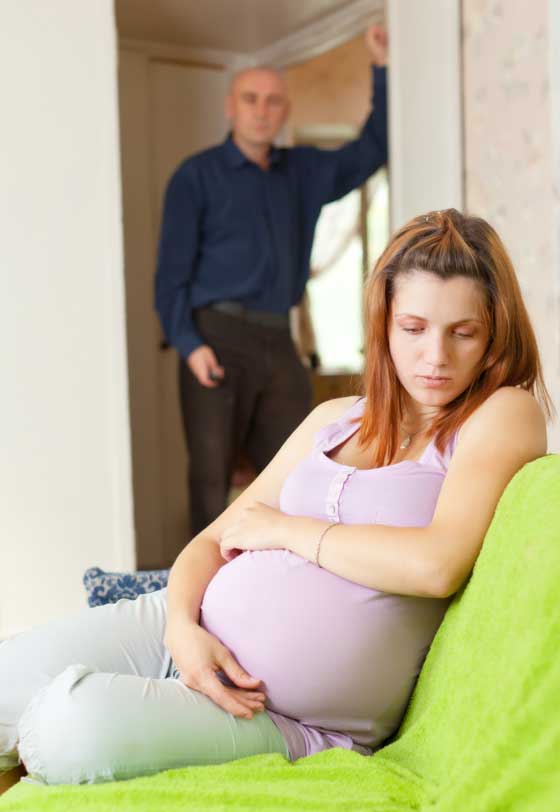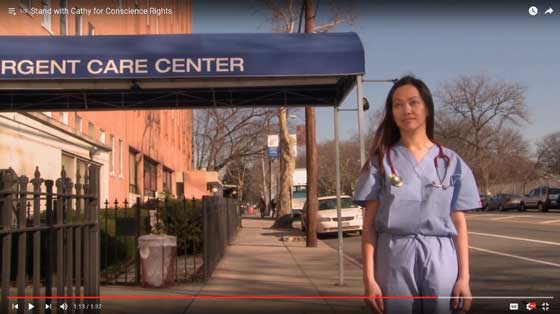Lansing Update: May 27, 2016
Posted May 27, 2016
ACTION NEEDED! Protect the Health and Safety of All Michigan Students

Next week, on Tuesday, May 31st, the Conference Committee on K–12 Appropriations will meet at noon to resolve differences in their state budget proposals for the 2016–2017 year. During the committee, lawmakers will be addressing critical funding for non-public schools, which will help meet state requirements for the health, safety, and welfare of those students. Both the Michigan House and Senate proposals currently include funding for this purpose. Staff anticipates this will be included in the final budget, but one last push is needed. Please take a minute to contact your state lawmakers to encourage support for this funding for non-public schools.
MCC Case Against Federal HHS Mandate Returns to Lower Court
After sending the Little Sisters of the Poor case against the HHS mandate back to the circuit courts on May 16, this week the Supreme Court sent two more cases, including MCC’s, back to lower courts for reconsideration. The cases challenge the “accommodation” process for non-profits who oppose the U.S. Department of Health and Human Services’ mandate, which requires these groups to cover contraception, sterilization, and abortion-inducing drugs in employee health plans. Last week, the president of the U.S. Conference of Catholic Bishops, Archbishop Joseph Kurtz, said that the bishops welcome the continued opportunity to oppose the mandate, as “we do not wish to push people of faith and their ministries out of charitable work…or leave freedom or religion protected only in private worship.”
Termination of Parental Rights Bill Headed to Governor’s Desk
The Michigan House overwhelmingly supported the passage of Senate Bill 858 this week, which allows a court to terminate parental rights for the offending parent when a child’s birth is the result of criminal sexual conduct. The measure, sponsored by Senator Rick Jones (R-Grand Ledge), received a 100–9 vote after passing the Michigan Senate last week unanimously. Michigan Catholic Conference supported the bill, which prevents perpetrators of sexual assault, where a child is conceived, from being able to manipulate their claims to parental rights as a means to punish, coerce, harass, or intimidate their victims. Governor Snyder will now have the chance to consider the legislation. If the governor signs the measure into law, Michigan will be able to qualify for approximately $414,000 in added funding for sexual assault victim services under the federal “Rape Survivor Child Custody Act.”
Coercive Abortion Prevention Act One Step Away From Becoming Law

In addition to the parental rights bill mentioned above, Governor Snyder will also have the opportunity to consider legislation that makes it a criminal offense to intentionally coerce a pregnant woman to have an abortion. The Senate passed HB 4787 and 4830, sponsored by Representatives Amanda Price (R-Holland) and Nancy Jenkins (R-Clayton) by a 26–11 vote. The bills previously received a vote in the House of 65–43. Michigan Catholic Conference testified in favor of the legislation during the process, citing the negative physical and emotional impacts abortion coercion has on women, and is thankful to the sponsors for their work.
Senate Committee Considers and Approves Criminal Justice Measures
The recidivism rate, or rate of individuals who commit another crime after being paroled or during probation, is a significant issue in Michigan. During the week, the Senate’s Michigan Competitiveness Committee continued to hear testimony on a large package of bills aimed at encouraging rehabilitation for parolees and probationers. MCC supported Senate Bills 933–935, 948, 949, sponsored by Senators John Proos (R-St. Joseph), Rick Jones (R-Grand Ledge), and Mike Shirkey (R-Clark Lake), which are part of a larger bill package. These measures modify the penalties for probationers who commit technical probation violations, encourage parole and probation officers to implement supervision practices that reduce recidivism, and expand participation in the “Swift and Sure Probation” supervision program. More work is still needed in the area of criminal justice to ensure that those who have finished their sentence have the support they need to transition back in to their communities and find employment and housing. The bills received approval in the committee and await further consideration on the Senate floor.
Domestic Violence Bills to Modify Cell Phone Plan Pass House Committee
In the hands of an abusive partner, cell phone information can be potentially dangerous, because it allows one to see whom their victim has been communicating with and to track their location. To address this issue, the House Communications and Technology Committee unanimously approved two measures that would allow victims of domestic abuse to legally separate from a cell phone plan that is in their abuser’s name. House Bills 5641–5642, sponsored by Representatives Tom Barrett (R-Potterville) and Vanessa Guerra (D-Bridgeport), would allow a victim to request a court order to do so when applying for Personal Protection Order (PPO). This will allow cell phone providers to transfer the wireless number and set up a separate account. In addition, if the victim and abuser had a child and the victim had legal custody, the victim could also get the same wireless phone contract release for the child. MCC supported the bills, which now continue to the full House for further consideration. For those who have not yet read MCC’s latest The Word from Lansing, which is on the topic of domestic violence, sexual assault, and other recent legislative measures on these issues by Michigan lawmakers, click here.
MCC Opposes Legislation That Limits Energy Choice; Bill Before Michigan Senate
This week, the Senate Energy and Technology Committee approved Senate Bill 437, which places additional conditions on alternative energy suppliers (AES). Under the legislation, an AES is required to purchase energy capacity from in-state suppliers, not on the wholesale market, thereby limiting the competitive price they could offer to customers. The bill, sponsored by Senator Mike Nofs (R-Battle Creek), also requires a choice customer to pay a portion of the production cost of the traditional energy utility, which would mean they were paying for power they are not currently using. Michigan non-public schools have saved over $1.5 million because of the option to choose an alternative energy supplier rather than a traditional utility. While the energy choice market is preserved at ten percent of the total market under the legislation, MCC is concerned the measure will have a harmful impact on the affordability and availability of energy choice and opposes the bill. The measure’s companion bill, SB 438, maintains the state’s renewable energy portfolio requirement at ten percent. The bill also sets a goal of thirty-five percent renewable and waste reduction by 2025. While MCC did not take a position on SB 438, staff continues to evaluate its overall impact on Michigan’s renewable energy policy. The committee approved both bills, which will receive consideration from the full Senate.
USCCB Offers New Video On Behalf of the Federal Conscience Protection Act

For years, the U.S. Bishops have asked Congress to reform federal laws on conscience rights, especially to protect individual and institutional health care providers who object to abortion. Unfortunately, people like Cathy Cenzon-DeCarlo, R.N. have been forced to perform abortions, despite their religious beliefs. Watch Cathy tell her story. Legislation introduced at the federal level, however, would defend the conscience rights of those who object to abortion and offer a right of action to defend their rights in court. To send a message to your U.S. lawmakers in support of this legislation, click here.
If you haven't done so already, please join the Catholic Advocacy Network to receive regular public policy updates—including Lansing Update—via email. For other news and information, follow MCC on Twitter, like MCC on Facebook, follow MCC on Instagram, or visit MCC’s webpage.
